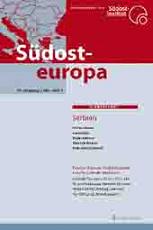Der Beitritt der südosteuropäischen EU-Mitglieder zur Wirtschafts- und Währungsunion
The Euro Adaption in South Eastern Europe
Author(s): Ognian N. HishowSubject(s): Economy
Published by: De Gruyter Oldenbourg
Summary/Abstract: Abstract: The new member states are required by law to join the economic and mone-tary union of Europe (EMU). While the EU Treaty obliges them to abandon their na-tional currencies after having obtained membership, it does not specify any period of time for this purpose. However, some South European countries boast pegged curren-cies, i.e. they had granted their national monetary policy to the European Central Bank. Because of the hard peg they cannot gain much by not adopting the euro and are therefore encouraged to introduce the common currency soon. But others have re-tained their national monetary independence and thus more monetary freedom before the ultimate accession to the EMU, so they can wait. The article draws on the theory of Optimum Currency Area and discusses some preconditions the candidates must fulfil to produce a better cost-benefit balance and make the euro deliver.
Journal: Südosteuropa. Zeitschrift für Politik und Gesellschaft
- Issue Year: 2007
- Issue No: 02-03
- Page Range: 190-216
- Page Count: 27
- Language: German
- Content File-PDF

